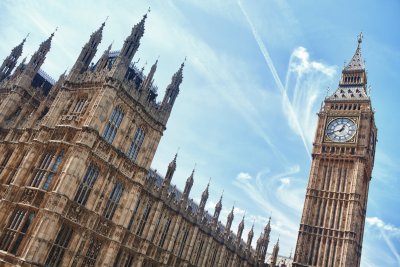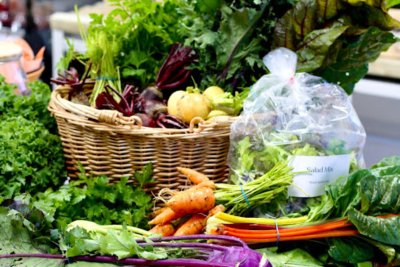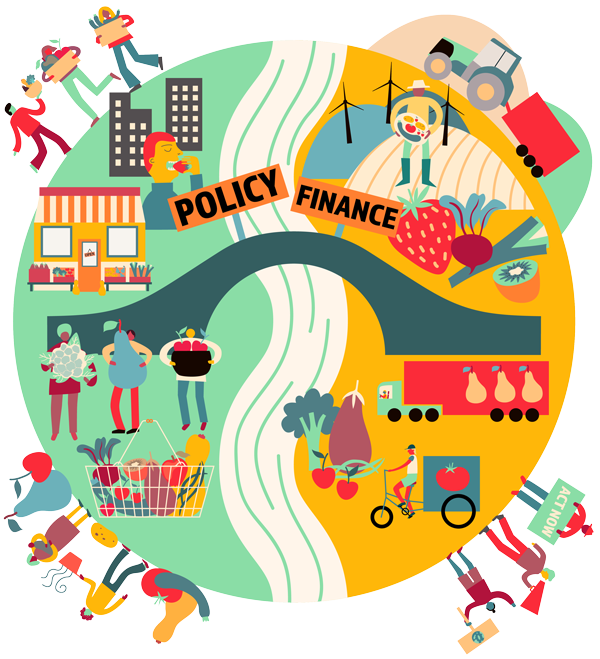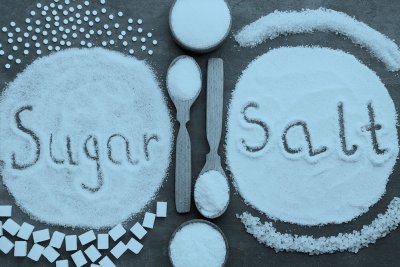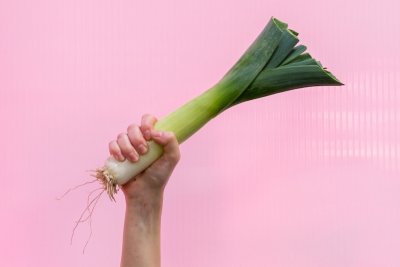In response to recent stories about the possibility of food shortages in the event of a 'no deal' Brexit, Sustain's chief executive Kath Dalmeny (also Sustain's Brexit Lead) said:
"The UK gets about 30 per cent of its food from other EU countries (a further 11% via deals done by the EU with other countries), so any serious disruption to the trade flow in food would have major consequences. Not least to the 8.4 million people in the UK who are already food insecure, who would have little resilience to rising food prices, nor to scarcity. Millions of people have no spare money to buy in extra food just in case, so talk of the need for stockpiling is distressing. A fair, measured and well-planned approach is vital to avoid causing unnecessary food disruption and anxiety, and to make sure that everyone can eat well."
"Sustain also strongly advocates that the British Government should treat as a high priority agreeing a trade deal with the EU. This is a sensible approach for securing our food supply and the livelihoods of British farmers, food businesses and the 3.9 million people employed in the UK's food and farming sectors. From all we have heard over the past two years, including from industry leaders representing small and large companies, a free trade deal with the EU is the UK's most sensible way forward."
Further information about 'deal' or 'no deal'
For what ‘no deal’ could/would mean for British businesses, read the cool-headed summary from the Institute for Government. For a glimpse of the complexity of ‘legislating in the dark’ whilst navigating through myriad uncertainties, read Professor Mark Elliott, Legal Adviser to the House of Lords Constitution Committee.
Another landmark report from Professors Tim Lang, Erik Millstone and Terry Marsden, with the Head of Policy for the Chartered Institute for Environmental Health Tony Lewis, warns that a ‘no deal’ Brexit “would jeopardise the sustainability and security of the UK’s food supply”. Their report Feeding Britain: Food security after Brexit urges Government to:
- Maintain a clear and explicit focus on possible adverse effects of Brexit on food security
- Ensure high food standards
- Make the UK’s migration policy available
- Avoid a hard or ‘no deal’ Brexit
Being prepared for changes to come
‘Notices of Preparedness’ for a no deal Brexit have been circulated to all affected sectors, setting out the implications of different UK-EU deal and no deal scenarios. No – not yet by the UK Government! Only by the EU-27, over the course of the past few months (published as one document last week). Theresa May said that 70 similar notices for the UK will be published later in August – possibly all on the same day – for different audiences, such as businesses, homeowners, farmers, hauliers and holidaymakers. Drafts have already caused a furore among pro-Brexit MPs, who deem them ‘too negative’; meanwhile The Times reports that companies and industry groups receiving such notices will be required to keep the contents secret, by signing Non-Disclosure Agreements (NDAs).
The Government has said that stockpiling medicines and food may become necessary if there is a ‘no deal’ Brexit, with several media outlets reporting the army would be on standby to help distribute emergency supplies. Notable for the differences in approach between two basic imported necessities – medicine (NHS already undertaking ‘significant planning’) and food (as far as we can tell – ‘open the food import borders and leave it to industry’):
- New Health Secretary Matt Hancock told MPs on 24 July he had asked officials to "work up options for stockpiling" by the pharmaceutical industry. NHS boss Simon Stevens had already signalled on 1 July that “significant planning” is underway to ensure sufficient medicines are available in a ‘no deal’ scenario. The UK buys 350 million packages of medicines from other EU countries each year, including all of the insulin used to treat people with diabetes in the UK.
- Brexit Secretary Dominic Raab told MPs on 24 July that the government would be taking steps to make sure there is an "adequate food supply", but underlined it would not be government doing the stockpiling. A report by Jay Rayner in The Guardian on 29 July suggests that the UK’s main food suppliers – via the British Retail Consortium, Food and Drink Federation and National Farmers Union – have not yet been approached, and that ‘Just in Time’ ordering means that there is anyway scarce opportunity or storage space for significant stockpiling – having only about three to five days fresh food available at short notice, at best. The Financial Times confirmed that “Britain’s grocers say they have had no contact with the government about stockpiling food in anticipation of the UK crashing out of the EU in March without a withdrawal deal and have ridiculed suggestions it is their responsibility to begin the process.” A report from the Food Research Collaborationsuggests that, “Government is already planning to suspend food regulations in the event of a ‘no-deal’ Brexit, to help keep food flowing.”
Food sector positions on a 'no deal' Brexit
Responding to the growing possibility of a ‘no deal’ scenario with the European Union:
- Sustain has urged a clear focus on maintaining high regulatory standards for food, farming and fishing, and for the UK to avoid ‘no deal’ and maintain a close trading relationship with our nearest neighbours – the EU.
- Friends of the Earth said that “A no deal Brexit would be catastrophic for the environment,” and that “Defra is nowhere near ready to leave without a deal, and we don’t yet have even the most basic enforcement mechanisms in place.”
- The NFU and Greener UK warned that crashing out of the EU without a deal could bring many farms to the “brink of collapse” and undermine the protection of the countryside.
- Greener UK (the alliance of leading UK environment groups) said, “No deal Brexit would make UK the ‘dumping ground’ for chemicals banned in Europe,” and that barriers to trade, loss of access to vital EU agencies and weakened cooperation with Europe could all “jeopardise Britain’s environment”.
- Union and business leaders of the Trades Union Congress, the Confederation of British Industry, the European TUC and Business Europe (the European CBI) (together representing 45 million workers and 20 million employers) jointly called for ‘regulatory alignment’ – maintaining frictionless trade, and avoiding a hard border in Northern Ireland – together backing “a mutually acceptable level playing field for workers’ rights”.
- The Freight Transport Association issued a scorching press statement laying out the challenges to the 300,000 truck journeys needed to keep UK-EU trade on the road, arising from lack of clarity and the “reckless attitude” of “some members of the Government”.
- The Netherlands said that they have hired 1,000 new customs officials for the port of Rotterdam, and are recruiting 90 vets for animal and food checks, with new warehousing for inspections, at a cost of 35 million Euros – in preparation for new trading arrangements including ‘no deal’. No similar process seems to be adequately in train in the UK.
- The British Retail Consortium said, “Failure to reach a Brexit deal – the cliff edge scenario – will mean new border controls and multiple ‘non-tariff barriers’ through regulatory checks, creating delays, waste and failed deliveries. This could lead to dramatic consequences, with food rotting at ports, reducing choice and quality for UK consumers. It could also lead to higher prices as the cost of importing goods from the EU increases.”
Legislation needed quickly in a 'no deal' scenario
The Repeal Bill alliance has pointed out that a ‘no deal’ Brexit, with the possibility/likelihood of no transition period or extension for further negotiation, would make rapid acceleration of several UK policy processes necessary. The alliance says in its July 2018 report Scanning the Brexit Horizon, ‘no deal’ would mean the following would need to be legislated on by 20 March 2019. We note how many are relevant to food, farming and fishing – and are also highly contentious, not least in relation to future standards-setting, accountability, regulatory and enforcement mechanisms, trade deals and of course devolution:
- Nuclear Safeguards Bill
- Trade Bill
- Taxation (Cross Border Trade) Bill
- Agriculture Bill
- Migration Bill
- Fisheries Bill
- Withdrawal Agreement and Implementation Bill
- Animal Welfare (Sentencing and Recognition of Sentience) Bill
- Haulage Permits and Trailer Registration
- Environmental Principles and Governance Bill
Looking back at Chequers
For the historical record, the Brexit terms agreed by Cabinet ministers (in the Agatha-Christie style Chequers meeting on 6 July), with details confirmed in the subsequent White Paper, were generally welcomed in principle by food and farming leaders, shortly before being picked apart in the detail by resigning ministers, the media and EU negotiators. The Brexit White Paper stated that the UK proposes “a free trade area for goods, including agri-food… The UK and EU would maintain a common rule book… with the UK making an upfront choice to commit by treaty to ongoing harmonisation with EU rules on goods, covering only those necessary to provide for frictionless trade at the border.” The explicit itemisation of agri-food in both papers showing how important agri-food standards and trade arrangements are to the whole Brexit story. Responses included:
- From the Sustain alliance: “The common rule book for UK-EU food standards is welcome, but many questions remain.”
- From the National Farmers Union (NFU): This would “ensure that the UK and EU have frictionless access to each other’s markets… protecting the uniquely integrated supply chains and ‘just-in-time’ processes that have developed over the last 40 years”.
- The British Retail Consortium (representing the major multiple supermarkets) said, “Frictionless trade is essential if the industry is to continue to provide the level of choice and value in shops that UK consumers are used to seeing.”
- The Food and Drink Federation (representing the major food manufacturers) said, “Our fragile and highly integrated supply chains rely on seamless trade and common regulatory standards with our closest neighbours.”
Defra food policy on the far horizon
At the Royal Welsh Show in July, Michael Gove urged UK farmers to “keep their eyes on the prize” of a free trade deal with the EU and less red tape post Brexit. In an article in the Mail on Sunday, Michael Gove and fellow Cabinet member Greg Clark, Secretary of State for Business, Energy and Industrial Strategy, said that “The Common Agricultural Policy would not be part of the rule book, and neither would food policy.* So our plan will allow us to deliver a better deal for our farmers and food producers. We can redirect the support we give them to both make them more competitive and to enhance the countryside they care for. The high animal welfare and environmental standards our farmers uphold give our food a world-leading reputation.”
*Food policy? What food policy? Michael Gove lightly sketched in a little more detail when giving evidence to a subsequent parliamentary committee. Defra non-executive director and co-founder of the Leon restaurant chain Henry Dimbleby has been tasked with leading on the development of a food strategy for Defra, which is still “a long way off”. Henry Dimbleby previously worked with Michael Gove’s team and others (including Sustain) on the School Food Plan.
Good Food Trade Campaign: Campaigning for good trade that benefits people and the planet at home and overseas.

